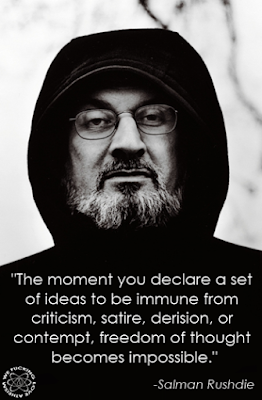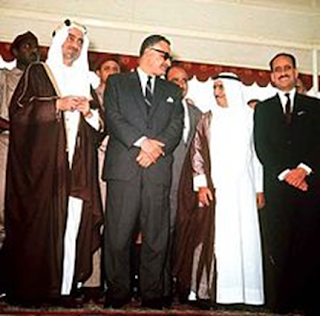Is Questioning & Criticizing Ideas Hate Speech?
In our politically correct society, many people are asking whether or not there need to be limits to free speech. If we need to simply outlaw hate speech altogether and make it a criminal offense. However, many seem to misunderstand the concept of free speech. Now obviously there have to be some limits on what we say in our society. For instance, we cannot threaten to kill people or physically harm them. This includes making bomb threats or shooting threats. We cannot yell fire in a crowded building when there is no fire. However, our First Amendment Rights permit us to question and criticize any individual or ideology in the world, whether it is societal, political, or spiritual. Let us consider some examples. In our nation, we have the right to criticize the views and policies of political leaders, whether they're governors, congressmen, or the President. We likewise have the right to criticize the views and actions of other national leaders anywhere in the world.
For centuries, people have given their lives for the rights to speak out against tyranny, and that right should not be compromised. Now some may argue that speaking out against the ideas and teachings of individuals, or the ideas and teachings of faith and societal systems should be limited because it can promote hatred and violence, but is this a fact? Is criticizing an idea that same as hating people? Logically, the answer to that question is no.
When people criticize practices like polygamy, does that mean that they hate all people in the world that engage in polygamy? I think most critics would say no. I have seen a number of people, including those living within polygamous societies criticizing this practice and calling for it to end, but I've never seen any of these activists demanding physical harm or hatred of those who believe in and engage in the practice. When many in America criticized policies like slavery and segregation, did they call for the death of those who disagreed with them? The answer was no. Dr. King never advocated for violence against those who supported segregation. He instead urged people to understand why it is wrong and urged our nation to search their souls and unite to bring about positive societal change.
If I as an individual criticize some of the teachings and practices of the Catholic Church (Which I have done) does that make me a Catholicphobe? No, it does not. In fact, that would be an absurd accusation considering that I myself am a practicing Catholic. There are some teachings and practices of the church (Ex. Purgatory & Mandatory Celibacy of Clergy) that I do not agree with and would like to change, but I also know that the church has changed practices in the past and they it can do so again. If I question or critique the teachings and actions of Muhammad, the founder of Islam, does that mean that I hate Muslims? The answer is again no. I personally have Muslim friends and I know many who disapprove of some of Muhammad's actions and oppose Sharia Law. There have been a number of prominent Muslims in the world such as Imam Tawhidi and Dr. Ahmed Mansour who have called for Sharia to be abolished and for the political aspect of Islam to be done away with and refined simply into a spiritual practice and nothing more. Does that make people like this "Islamaphobes?" The answer is no. These men are in fact practicing Muslims, so what sense does it make to accuse them of hating Muslims?
The right to criticize any individual or idea, regardless of whether it's a political idea, a societal idea, or a spiritual one is not hate speech. In fact, its a fundamental human right that people have given their lives for over the course of many centuries. Disagreeing with an idea, or a practice does not mean hating people. In truth, many who do disagree with ideas and practices do so not out of malice, but out of love and concern for their fellow man. We cannot compromise our First Amendment Rights under the guise of wanting to protect individuals from having their feelings hurt. Instead of compromising our First Amendment Rights to prevent people from "being offended," we should instead teach people how to not be offended and how to keep an open mind. I learned personally that by listening to my opponents, I may find out that I did not have all the answers and perhaps they are making valid points that I never considered before. Our First Amendment is essentially to the ongoing development and stability of our society, and it cannot be compromised because some people feel that criticizing and questioning certain ideas and individuals is "offensive."
For centuries, people have given their lives for the rights to speak out against tyranny, and that right should not be compromised. Now some may argue that speaking out against the ideas and teachings of individuals, or the ideas and teachings of faith and societal systems should be limited because it can promote hatred and violence, but is this a fact? Is criticizing an idea that same as hating people? Logically, the answer to that question is no.
When people criticize practices like polygamy, does that mean that they hate all people in the world that engage in polygamy? I think most critics would say no. I have seen a number of people, including those living within polygamous societies criticizing this practice and calling for it to end, but I've never seen any of these activists demanding physical harm or hatred of those who believe in and engage in the practice. When many in America criticized policies like slavery and segregation, did they call for the death of those who disagreed with them? The answer was no. Dr. King never advocated for violence against those who supported segregation. He instead urged people to understand why it is wrong and urged our nation to search their souls and unite to bring about positive societal change.
If I as an individual criticize some of the teachings and practices of the Catholic Church (Which I have done) does that make me a Catholicphobe? No, it does not. In fact, that would be an absurd accusation considering that I myself am a practicing Catholic. There are some teachings and practices of the church (Ex. Purgatory & Mandatory Celibacy of Clergy) that I do not agree with and would like to change, but I also know that the church has changed practices in the past and they it can do so again. If I question or critique the teachings and actions of Muhammad, the founder of Islam, does that mean that I hate Muslims? The answer is again no. I personally have Muslim friends and I know many who disapprove of some of Muhammad's actions and oppose Sharia Law. There have been a number of prominent Muslims in the world such as Imam Tawhidi and Dr. Ahmed Mansour who have called for Sharia to be abolished and for the political aspect of Islam to be done away with and refined simply into a spiritual practice and nothing more. Does that make people like this "Islamaphobes?" The answer is no. These men are in fact practicing Muslims, so what sense does it make to accuse them of hating Muslims?
The right to criticize any individual or idea, regardless of whether it's a political idea, a societal idea, or a spiritual one is not hate speech. In fact, its a fundamental human right that people have given their lives for over the course of many centuries. Disagreeing with an idea, or a practice does not mean hating people. In truth, many who do disagree with ideas and practices do so not out of malice, but out of love and concern for their fellow man. We cannot compromise our First Amendment Rights under the guise of wanting to protect individuals from having their feelings hurt. Instead of compromising our First Amendment Rights to prevent people from "being offended," we should instead teach people how to not be offended and how to keep an open mind. I learned personally that by listening to my opponents, I may find out that I did not have all the answers and perhaps they are making valid points that I never considered before. Our First Amendment is essentially to the ongoing development and stability of our society, and it cannot be compromised because some people feel that criticizing and questioning certain ideas and individuals is "offensive."




Comments
Post a Comment